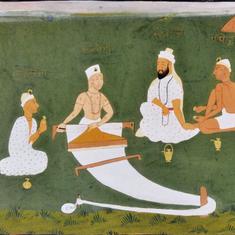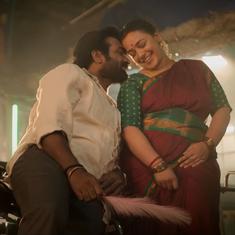AR Murugadoss’s Akira (2016) is a remake of the Tamil action drama Mouna Guru (2011), which has also been retooled in Kannada as Guru (2012) and the upcoming Telugu release Shankara (2016). The big twist in Akira is that unlike the other films, it features Sonakshi Sinha in the lead. Will audiences be ready for a high-kicking heroine?
The music by Vishal-Shekhar holds the first clue. It bears tell-tale signs of high decibel music supporting the film’s supposedly high-voltage content. Coming close on the heels of the enormous success of Sultan (2016), composers Vishal-Shekhar have amped up the volume for Akira, perhaps in anticipation of one hit doubling the other’s chances.
Rajj Rajj Ke, written by lyricist Kumaar, gets three versions that evoke the film’s grim mood. In the first version, Sinha sings along with Vishal Dadlani. The percussion takes over her vocal strengths, leaving her little with which to display her singing talent.
The second and the third remix versions are sung by former Indian Idol contestant Nahid Afrin. The 14-year old talent is impressive with her vocal range, which swings between sweet and husky tones.
Rajj Rajj Ke sounds awfully similar to the Sachin-Jigar composed Jee Karda (Badlapur, 2015) in arrangement and tonality. Even the videos, in which the singer-performers rage against implacable emotions, are filmed in a similar fashion.
Purza is sung by Arijit Singh in the trademark laconic style that defines some of his best rendered moody ballads. The staccato beat, smattering of Latin jazz influences from bossa nova to samba, and electronic riffs bring alive the broken poetry of lyricist Manoj Muntashir’s words, Mein purza purza tera, na aadha pauna tera, mein poora poora tera (I am yours in each dismantled fitting, not half or three-quarters, am wholly wholly yours).
Shekhar Ravjiani sings Kehkasha Tu Meri, which follows an unoriginal template both in melody and lyrics. The fourth and final song Baadal, sung by Sunidhi Chauhan, is a pop number with a rock heart. A guitar-backed alaap gives it a superb, full-blast grunge finish.
Too fleeting to sustain itself, Akira’s music stays within the film’s action-oriented purview, showcasing Rajj Rajj Ke as its trump card to glory.









